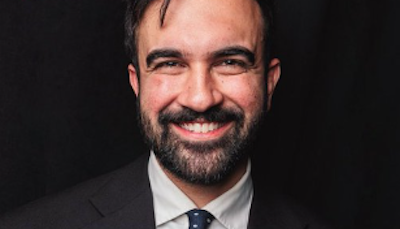In a groundbreaking political upset, Zohran Kwame Mamdani has been elected as New York City’s youngest mayor and the first Muslim to hold the office, as announced today, November 5, 2025.
The 34-year-old Ugandan-born Democrat and Democratic Socialist clinched 50.4% of the vote, defeating former Governor Andrew Cuomo, who garnered 41.6%, according to projections from NBC News. The victory, celebrated globally with coverage from Ghanaian outlet 3News, marks a significant shift toward progressive leadership in the city, following Mamdani’s tenure in the New York State Assembly where he championed affordable housing and transit solutions.
Mamdani’s campaign resonated with young and first-time voters, driving record early voting turnout in a non-presidential election. His platform, which includes promises of free childcare, faster buses, and a rent freeze, has sparked both enthusiasm and debate. During his victory speech, inspired by India’s Jawaharlal Nehru’s “Tryst with Destiny” address, Mamdani emphasized inclusivity and economic justice, connecting with immigrant communities through cultural references like Bollywood songs. This approach has positioned him as a fresh voice in a city grappling with affordability challenges.
X Post: Zohran Mamdani Elected as NYC’s Youngest and First Muslim Mayor in Historic Victory
Zohran Kwame Mamdani Muslim Mayor of New York City pic.twitter.com/FtUfOGRIXV
— GhanaTrends.com (@GhanaTrendsInc) November 5, 2025
The election outcome reflects a broader political realignment, with incumbent Mayor Eric Adams dropping out and Mamdani overcoming a competitive field that included Republican Curtis Sliwa. His background as a member of the Democratic Socialists of America and his vocal support for the Palestinian cause—highlighted by a 2023 hunger strike—have polarized opinions. While progressives hail his win as a triumph of grassroots activism, conservative figures like Donald Trump have criticized his policies, calling his supporters misguided, amplifying the national spotlight on NYC’s new leadership.
Mamdani now faces the daunting task of turning his ambitious pledges into reality amid a complex political landscape. Analysts suggest his success will depend on navigating potential standoffs with state and federal authorities, particularly on funding for his proposed initiatives. His experience managing campaigns for fellow socialists and his focus on corporate tax hikes for the wealthy signal a bold agenda, though delivering on these promises before public patience wanes will be a critical test of his leadership in the coming years.
As New Yorkers anticipate change, Mamdani’s historic rise is already shaping discussions on urban governance and diversity in politics. His victory underscores a growing demand for youthful, diverse representation, making him a symbol of hope for many while challenging traditional power structures. With the city’s eyes on him, Mamdani’s next steps will likely influence progressive movements nationwide, cementing his role as a pivotal figure in American politics.


